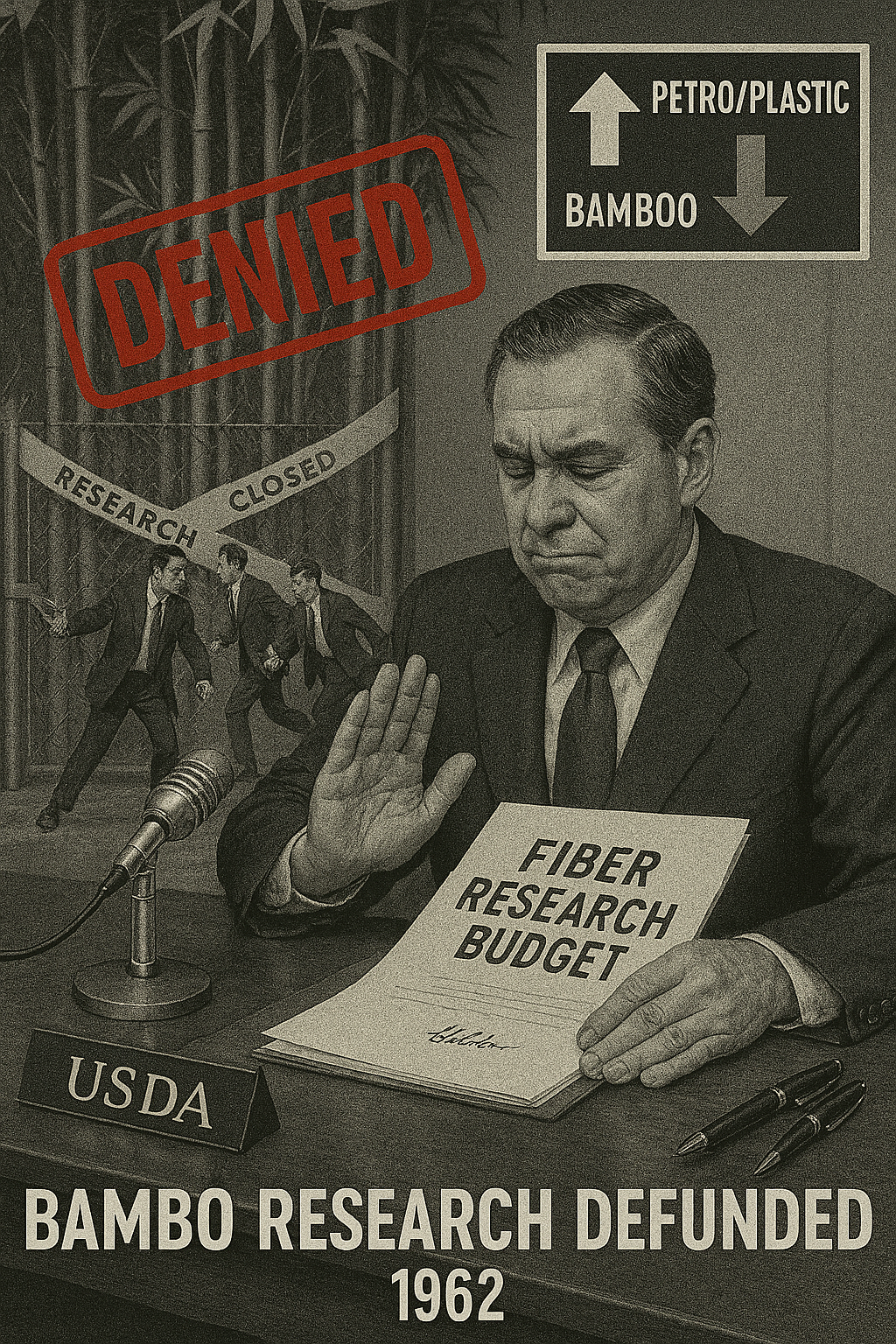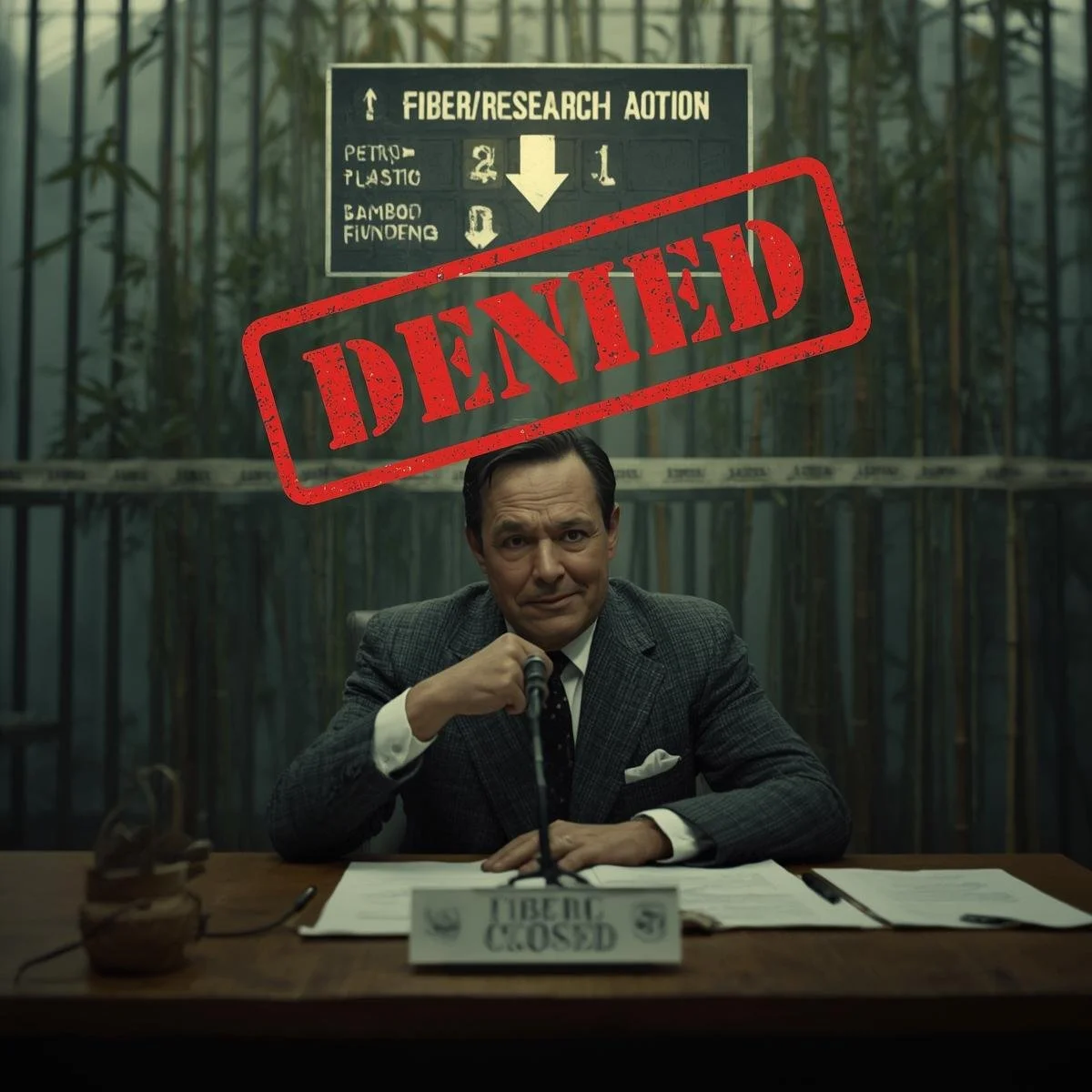🚫 1962: Bamboo Defunded - Research Stopped Before It Scaled.
By the 1960s, bamboo wasn’t banned — it was starved. The U.S. Department of Agriculture had run bamboo trials since the early 1900s. Reports from as far back as 1910 confirmed bamboo could replace southern pine for pulp and paper. Edward Avery McIlhenny proved it could thrive on U.S. soil. Roosevelt’s forestry officials had inspected his Louisiana groves.
But by 1962, USDA cut off funding for bamboo research stations. Labs in Savannah, GA and Beltsville, MD closed down. Bamboo wasn’t outlawed — it was defunded out of existence.
The Official Line
The USDA cited “budget tightening” and “limited commercial demand.” But the truth is simpler: timber, petrochemical plastics, and cotton had no interest in a crop that could outcompete them.
Bamboo grows 10x faster than pine.
It yields pulp in 3 years instead of 20.
It can replace hardwood in flooring, furniture, and composites.
The science was clear. The funding wasn’t.
The Receipts They Don’t Teach in School
1910 USDA Bulletin: Bamboo as a substitute for southern pine in pulp and paper (USDA Bulletin Archive).
Edward Avery McIlhenny’s Groves (1902): Bamboo still thriving on Avery Island, LA (Southern Garden History Society).
1965 USDA Statement: Bamboo research projects discontinued; funding redirected to cotton and petro-aligned crops (National Agricultural Library).
Forest Products Lab, 1960s: Reports show bamboo’s promise but note “lack of industry uptake” — a self-fulfilling cycle created by defunding (FPL Archives).
Why Bury This Truth?
Because defunding is quieter than banning. No headlines. No backlash. Just a slow starvation of potential.
Cotton kept its pesticide-soaked monopoly.
Timber kept clear-cutting forests.
Petrochemicals scaled up plastics without a bamboo competitor.
By the time the 1970s hit, bamboo wasn’t even in the conversation.
Consumer Takeaway
You didn’t choose plastic bags over bamboo. You never got the chance. Bamboo wasn’t outlawed — it was starved.
Every plastic fork, every clear-cut hillside, every imported bamboo floor from China today traces back to a budget vote you never saw.
Read the full story in the book.
Evolution Mine: The Industrial Evolution—the blueprint for breaking the petrochemical playbook and building a regenerative economy.
👉 Buy on Amazon




